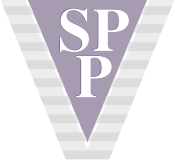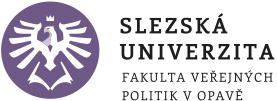Social Pathology and Prevention, 2017 (roč. 3), číslo 1
Editorial
EDITORIAL
Martin Kaleja
Social Pathology and Prevention 2017, 3(1):7-8 
Articles
COMPARISON OF QUALITY OF LIFE IN GIRLS IN RE-EDUCATION FACILITIES IN SLOVAKIA AND POLAND
Jarmila Žolnová, Veronika Vaňugová
Social Pathology and Prevention 2017, 3(1):11-18 | DOI: 10.25142/spp.2017.001 
The study investigates the quality of life in adolescent girls (N 97) with psychosocial disabilities committed to the re-education facilities in Slovakia and Poland. More specifically, we focus on comparison of the cognitive evaluation of life as a whole. In order to determine life satisfaction or dissatisfaction we used the exploratory Life Satisfaction Questionnaire composed by Fahrenberg, Myrtek, Schumacher, and Brähler (2001). The collected data were then analysed using a t-test showing that the girls were neither satisfied nor dissatisfied with their life cycle in the re-education facilities, without any significant differences.
EDUCATIONAL AND THERAPEUTIC APPROACHES WITHIN THE SYSTEM OF SECONDARY AND TERTIARY PREVENTION PROVIDED TO PERSONS ADDICTED TO HABIT-FORMING SUBSTANCES
Eva Šotolová
Social Pathology and Prevention 2017, 3(1):19-38 | DOI: 10.25142/spp.2017.002 
Addiction behaviour, specifically abuse of and addiction to habit-forming substances, must be approached from multidisciplinary perspective. The text is focused mainly on programs of secondary and tertiary prevention in which special educators are involved. It contains fundamental information for educators working also in other areas than that of addictology, in view of the fact that the problem of abuse of habit-forming substances by adolescents in young offender institutions and youth detention centres has been increasing. Emphasis is put on crisis intervention, on minimization of health and social risks in low-threshold programs, on residential...
RELATIONS AMONG STUDENTS – SCHOOL CLIMATE FACTORS
Helena Grecmanová, Lucie Blaštíková
Social Pathology and Prevention 2017, 3(1):39-61 | DOI: 10.25142/spp.2017.003 
The area of school climate has been a hot topic both in Czech and in international studies; it must be dealt with also with respect to the needs of practice, if relations among students are to be improved. The article discusses the climate of the senior elementary school (6th-9th year), primarily in connection with its essential factors, i.e. students. The text presents theoretical foundations of school climate from selected national and international authors. Basic research tools that served as source of inspiration for the actual research are stated; the research is described in the next part of the article and it is based on...
Report
HOW TO INTERCONNECT RESEARCH AND DEVELOPMENT IN EDUCATIONAL PRACTICE
Martin Kaleja, Marek Cetkovský
Social Pathology and Prevention 2017, 3(1):65-67 | DOI: 10.25142/spp.2017.004 
Experts from the Faculty of Public Policies of the Silesian University in Opava, as an implementation team conducted a sociological monitoring of education of preschool children and pupils of compulsory school education in the context of the whole of Czech Republic in the period from June 2014 to September 2015. They implement a research contract where the contracting authority was the Ministry of Education, Youth and Sports of the Czech Republic. The research goal had three basic research planes. The first one involved the implementation of research in the field of literacy among pupils of 3rd and 4th grade at primary schools...
Example of good practice
IMPLEMENTATION OF INCLUSIVE MEASURES TO SUPPORT PUPILS OF DIFFERENT SOCIO-ECONOMIC AND CULTURAL ENVIRONMENT
Katarína Dubělčíková
Social Pathology and Prevention 2017, 3(1):71-74 | DOI: 10.25142/spp.2017.005 
One of the projects aimed at the introduction of inclusive measures is the project Support of Inclusion in the Moravian-Silesian Region. The project involves eight primary schools, one secondary school, two pedagogical psychological counselling offices, a DTIC (District Facility for Further Training of Teaching Staff and Information Centre), and the non-government non-profit organization Společně-Jekhetane, CIC [o.p.s.].


